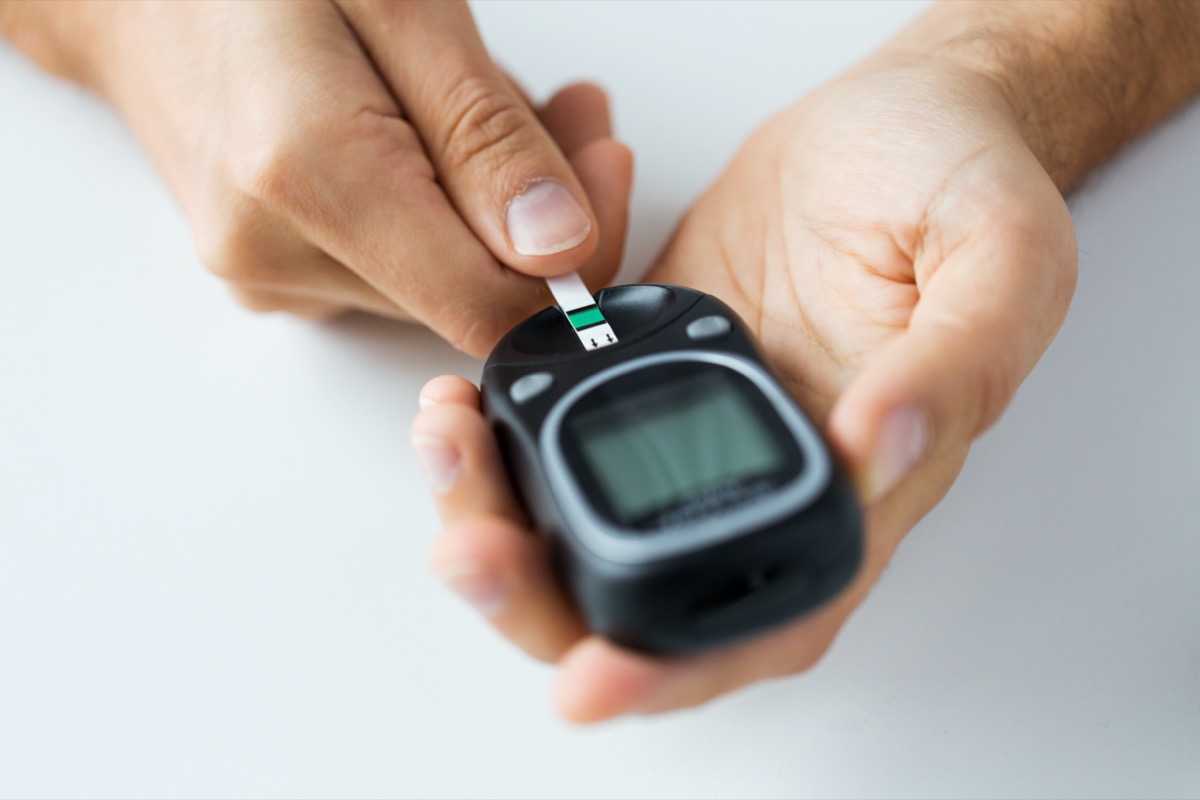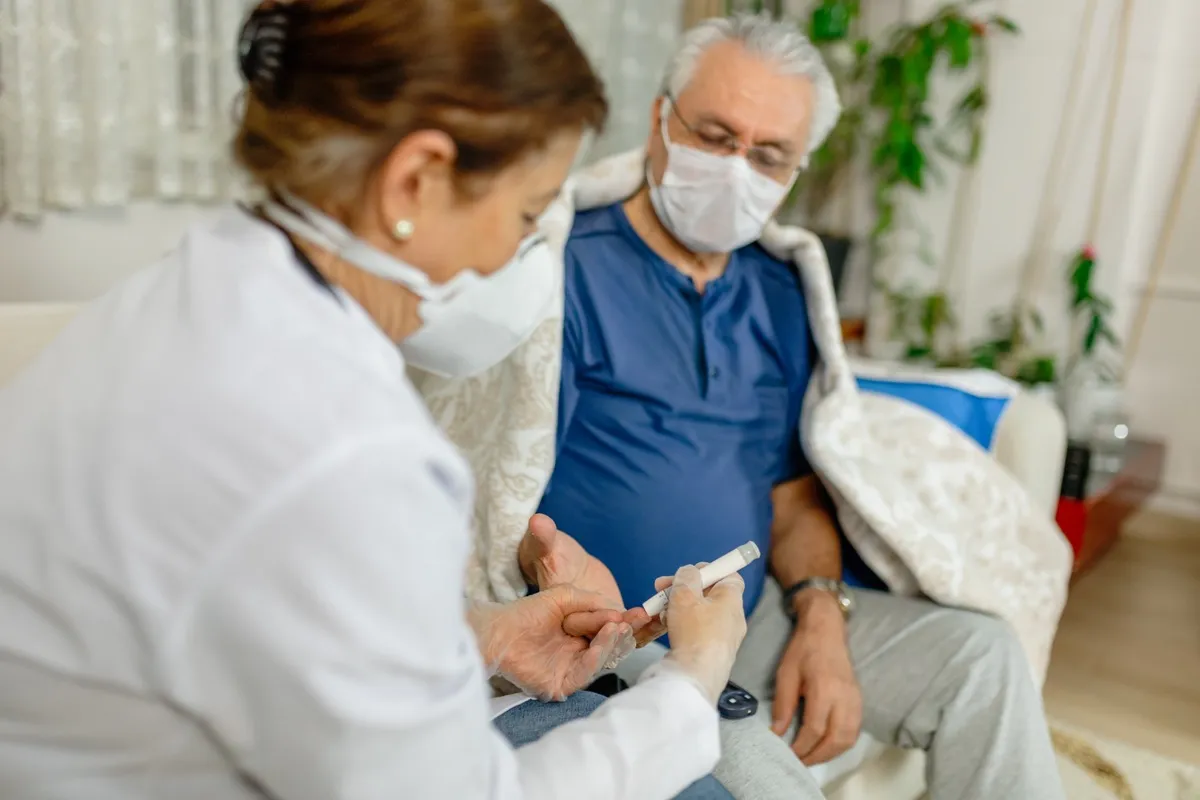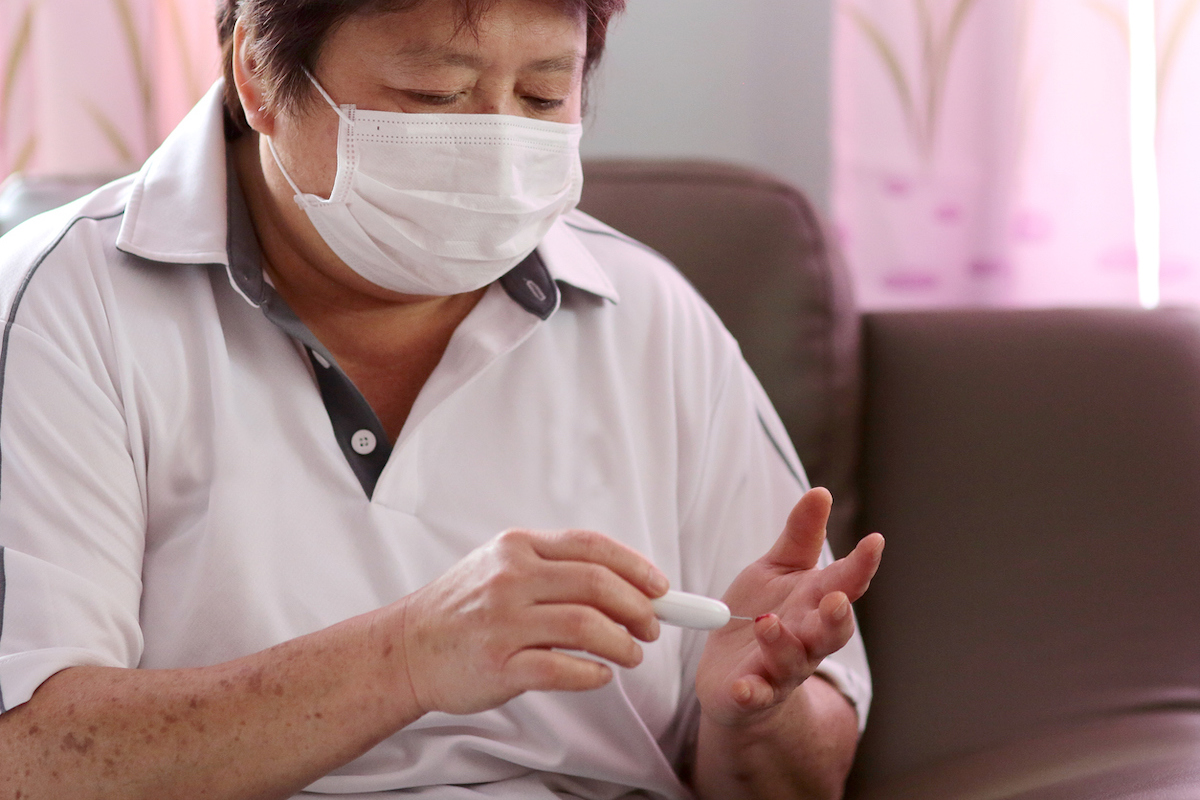Eve Bloomgarden, MD, assistant professor of medicine in the Division of Endocrinology, Metabolism and Molecular Medicine at the Northwestern University Feinberg School of Medicine, recently told AARP that doctors have been reporting “really impressive” rates of hyperglycemia and insulin resistance in COVID patients since the start of the pandemic. Read on to learn more about how this symptom presents itself so you know what to look out for, and for more signs you should be aware of, check out If You’re Over 65, Watch Out for This Subtle COVID Symptom.ae0fcc31ae342fd3a1346ebb1f342fcb A Nov. study published in the American Journal of Emergency Medicine found that some older patients are testing positive for COVID-19 with few complaints other than high blood sugar, AARP notes. The study, which came out of the Icahn School of Medicine at Mount Sinai in New York, found that in people over 65, hyperglycemia was “strongly correlated with COVID-19 positivity,” with 62.2 percent of coronavirus patients in this age group having the symptom. And for more COVID-19 news delivered right to your inbox, sign up for our daily newsletter. Unless you know you have diabetes, it’s not likely that you’re checking your blood sugar levels daily, so it is important to watch out for indicators. According to the Mayo Clinic, some of the signs of high blood sugar are the same as COVID-19 such as fatigue and headache. However, some of the more distinctive symptoms of high blood sugar are increased thirst, frequent urination, blurred vision, and fruity-smelling breath. Experiencing high blood sugar levels for long periods may lead to permanent damage to numerous parts of the body such as the eyes, nerves, kidneys, blood vessels, feet, bones, joints, gums, and teeth. And for more on the long-lasting effects of the virus, check out Dr. Fauci Says These Are the COVID Symptoms That Don’t Go Away. Having high blood sugar levels when you’re sick is not uncommon, the experts at the Diabetes Research & Wellness Foundation explain. When dealing with an infection, your body creates a stress response that increases the number of hormones that you produce. These hormones work against insulin, increasing the body’s production of glucose, which results in high blood sugar levels. When blood sugar levels are high, white blood cells are slowed down and are therefore inefficient at killing bacteria to fight off infections. To learn more about how what’s in your blood can affect your coronavirus risk, If You Have This In Your Blood, You May Be Safe From Severe COVID. Throughout the pandemic, it has been acknowledged that people diagnosed with diabetes are considered high-risk COVID-19 patients. Having diabetes does not make one more likely to contract the virus, but it does put the patient at risk for more severe symptoms and complications. For example, an April 2o2o meta-analysis published in the Journal of Infection determined that people with diabetes were nearly four times more likely to have a severe or fatal case of COVID-19 compared to patients without the underlying health condition. And for more factors that increase your risk, check out Without This Vitamin, You’re at Risk of Severe COVID, New Study Says. While it may be possible that these patients with high blood sugar levels unknowingly had the condition prior to their COVID-19 diagnosis, the high correlation between high blood sugar and COVID-19 had led doctors to begin researching whether or not the virus can trigger diabetes in patients who previously did not have the disease. But anecdotally, that seems to be the case. A Nov. 2020 meta-analysis published in the journal Diabetes, Obesity and Metabolism looked at eight studies that included a total of 3,700 COVID patients. Their findings suggested that as many as 14.4 percent of people hospitalized with severe COVID-19 went on to develop diabetes, but the researchers weren’t able to establish a direct link. Mihail Zilbermint, MD, who takes cares of patients with metabolic disorders at Suburban Hospital in Bethesda, Maryland, recently told The Washington Post that he’s gone from managing 18 patients per day to 30 due to COVID-19. Zilbermint said many of these patients had no prior history of diabetes. While some developed elevated blood sugar levels while hospitalized with the virus and then saw their levels return to normal, others were diagnosed with full-blown diabetes after combating COVID-19. “We’ve definitely seen an uptick in patients who are newly diagnosed,” Zilbermint told The Post. Francesco Rubino, MD, a diabetes surgery professor at Kings College, London, told The Post that some of these new diabetes cases don’t fit the typical profile of type 1 or type 2 diabetes, raising alarms that some new form of the disease has emerged due to COVID. “There’s a good chance that the mechanism of the diabetes isn’t typical,” Rubino said. “There could be a hybrid form. It’s concerning.” And for more on how the virus is affecting people for the long haul, check out The Terrifying Long COVID Symptom Doctors Are Now Warning About.




